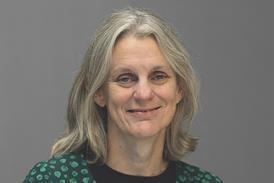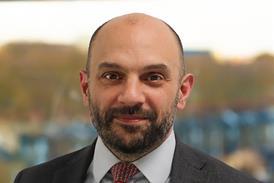In the world of sudden deaths, the law tends to move slowly. Parliament first passed legislation setting out the duties of coroners well over 700 years ago, in 1275. But the Statute of Westminster can also be seen as the last act of parliament to define the coroner’s role, in the sense that everything since then has amounted to tinkering or consolidation.
And now we learn that the latest piece of tinkering – the Coroners and Justice Act 2009 – will be implemented in part, in June 2013, a mere four years after it was passed. The section creating the post of chief coroner is already in force, and its first holder, Judge Peter Thornton QC, started work last week. His appointment was first announced two years ago, on the very day that the government told us that the post would be abolished in the ‘bonfire of the quangos’. As Thornton recalls, ‘the civil servants came to see me with gloomy faces and I was very politely told to keep up the day job at the Old Bailey.’
But then the role was reinstated by Kenneth Clarke, after lobbying by the Royal British Legion. The service’s welfare organisation hoped that having a chief coroner would improve the handling of inquests into military deaths. That may well prove to be the case: in a speech to the Coroners Society last week, Thornton noted his duty under section 17 of the 2009 act to monitor investigations into service deaths and to ensure that coroners conducting such investigations were suitably trained for the purpose. ‘I intend to carry out that duty to the full,’ he promised.
Building on the legislation, Thornton suggested specialist training for different groups of coroners. ‘The groups could include a cadre of specially trained service-death coroners who, if necessary, would travel to the area of the next of kin to investigate and hold the inquest,’ he explained. ‘Another group could include coroners specialising in deaths in custody or even particular types of deaths in custody such as asphyxia from restraint.’
A reform implemented this week will make it possible for fatal accident inquiries to be held in Scotland into the deaths on active service of Scottish military personnel whose bodies have been flown to England. But the Royal British Legion did not get every reform it hoped for. To save money, the government decided not to implement powers that would have allowed an appeal from a coroner’s decision to the chief coroner and from him to the court of appeal. That section has already been repealed.
There will be new coroner areas in England and Wales, replacing the existing districts and based on local authority areas. Coroners will become ‘senior coroners’ and there will be one for each area, together with at least one deputy. Thornton thinks the title ‘area coroner’, given to some deputies by the 2009 act, is confusing and should not be used. New coroners will have to be lawyers – at present, being a medical practitioner is good enough – and they will now have to retire at 70 instead of going on for as long as they like. All appointments will need the consent of the chief coroner and the lord chancellor, which means that coroners will no longer appoint their own deputies. It will also stop them giving work to their spouses or partners.
Crucially, though, coroners will still be the only full-time judicial officers to be appointed and funded by local authorities. While one can understand why successive government departments have not wanted to take on the cost of running the service, coroners should be appointed and supported in the same way as other members of the judiciary.
Still, some of the absurdities of localism will be avoided under the new act. As far as I can see, it will no longer be necessary for an inquest to sit within the area of England and Wales over which the coroner has jurisdiction. That rule can cause difficulties in high-profile cases where a large courtroom is needed to accommodate all the ‘interested persons’ and their lawyers, as we saw last week at a preparatory hearing for the inquest into the death of Alexander Litvinenko.
After the police had found that the former Russian intelligence officer had been poisoned with a rare radioactive isotope, Ben Emmerson QC, for his widow Marina, said the inquest would be asked to decide whether there was evidence that Russia had been responsible for ‘an act of state-sponsored nuclear terrorism’.
Litvinenko died at a hospital in central London within the jurisdiction of the coroner for the inner north London district. That coroner appointed Sir Robert Owen, a High Court judge, as his assistant deputy. Unfortunately, the inner north London district ends a few feet north of the Royal Courts of Justice in the Strand, which is the obvious place for Owen to conduct the full inquest.
One option would be for him to sit at one of the courtrooms in High Holborn used by the High Court Family Division. But a much more elegant solution would be for Owen to be appointed as an assistant deputy by the coroner for inner west London instead. That was how it was possible for inquests into the deaths of Diana, Princess of Wales and the victims of the London bombings to be heard at the law courts.
Litvinenko died a lingering death. From next June, deaths from unknown causes may justify a coroner’s investigation even if they were not ‘sudden’. Things change, slowly.



























No comments yet